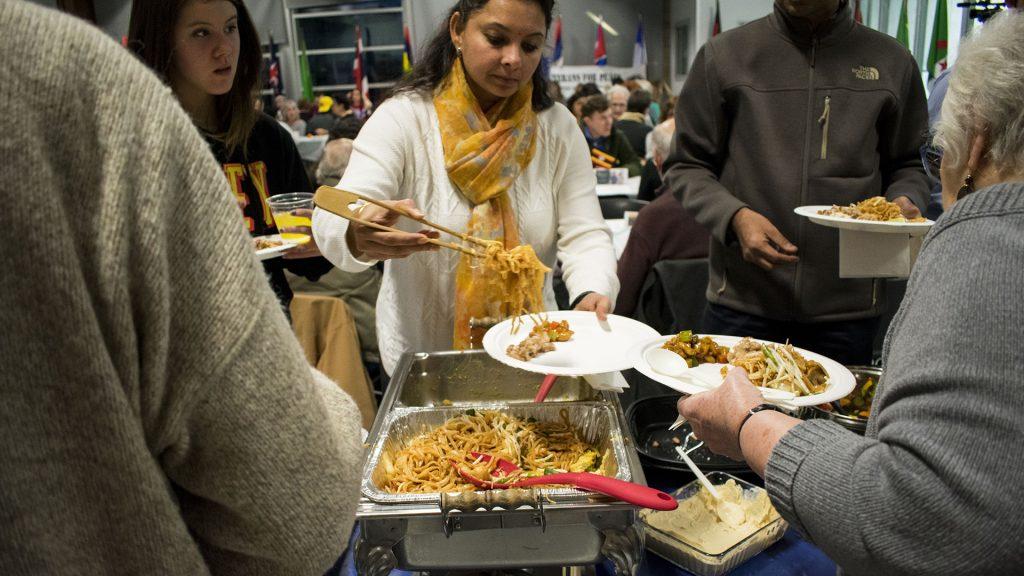A dinner Wednesday night raised money that will be used to educate children in a Kenyan refugee camp.
By Christopher Borro
There weren’t quite 1,000 meals served, but the Iowa U.N. Association’s community fundraiser, Night of 1,000 Dinners, was still a hit.
The gathering was held at the Robert A. Lee Recreation Center on Wednesday evening. Guests were greeted by Iowa City Mayor Jim Throgmorton and Iowa City City Councilor Mazahir Salih, who was briefly recognized by the Iowa U.N. Association.
The Johnson County Chapter of the U.N. Association hosted the dinner, and sponsors included the UI Center for Human Rights and UI Students for Human Rights, in addition to around 20 local businesses, clubs, organizations, campus groups, and the University of Iowa Student Government.
Throgmorton called the event “an opportunity for people from diverse cultures to be able to have better relationships and be more knowledgeable.”
The dinner’s theme was “Building a Better Future for Refugee Children.” Proceeds from the fundraiser benefited the Shabele Primary School in the Kakuma refugee camp in Kenya.
RELATED: Iowa City City Council candidate Mazahir Salih hopes to bring diversity to council
The Kakuma settlement is one of two in the African country, home to (as of 2014) around 60,000 individuals fleeing war-torn Eritrea, Somalia, Sudan, and other volatile nations. Many of these people spend long enough in the camp for entire cultural communities to develop.
“Last year, we just donated all of our money to a general fund supporting refugee education,” said Jim Olson, secretary of the board for the Johnson County chapter of the Iowa U.N. Association. “We thought it would be more interesting to donate it to a specific school.”
The Shabele school has around 2,300 students.
“Our members wanted to do something tangible and concrete … educating refugee children was the best thing we could do for them and for their families,” Olson said.
A short video detailing everyday life at the Kakuma camp was shown, and afterwards, five former residents of the camp formed a panel. They discussed how long they lived there and how they came to live in Iowa.
They also advocated for the importance of providing educational opportunities to children at the camp.
Salih, a native of Sudan, said there was some culture clash involved when moving to the United States.
“There were a lot of obstacles: language barriers, culture barriers, even weather barriers,” she said.
RELATED: UI United Nations Association writes to congressional representatives
Salih said she wanted to raise her family to blend Sudanese and American heritage.
“I think that all the time, my children get lost between two cultures,” she said.
This was the 18th-annual Night of 1,000 Dinners. Olson said the name originally developed from when the event was held to promote the removal of landmines in countries ravaged by war.
Three years ago, the U.N. Association reworked it to focus on refugees. It was also organized to coincide with International Women’s Day, March 8.
“People from [Iowa City] will learn what’s going on in those camps and how important it is to welcome those people and give them new, better opportunities to build better lives,” Salih said.



